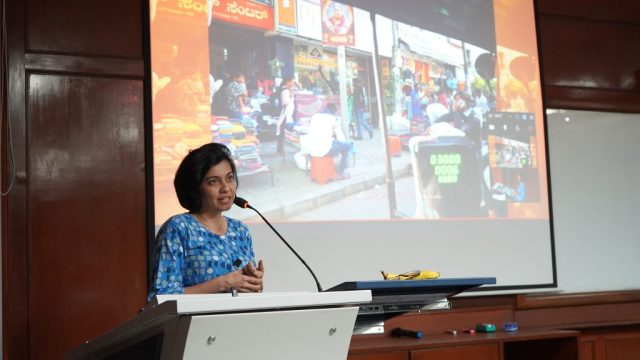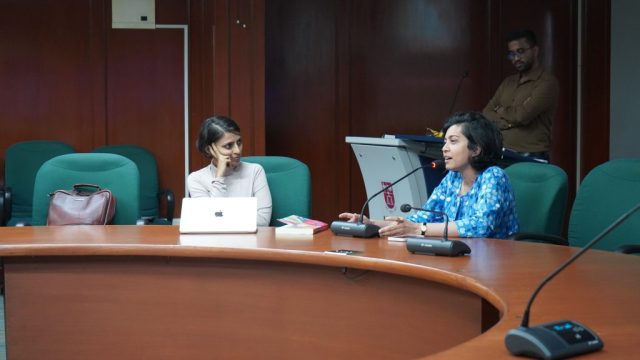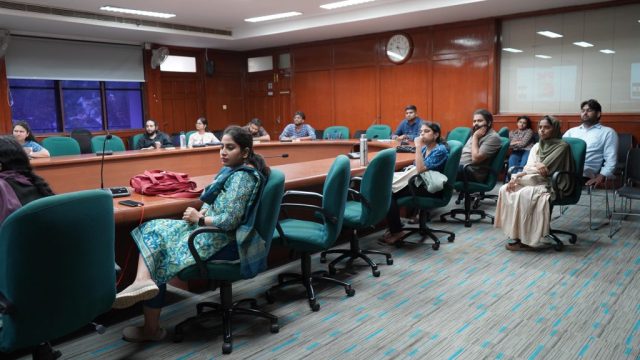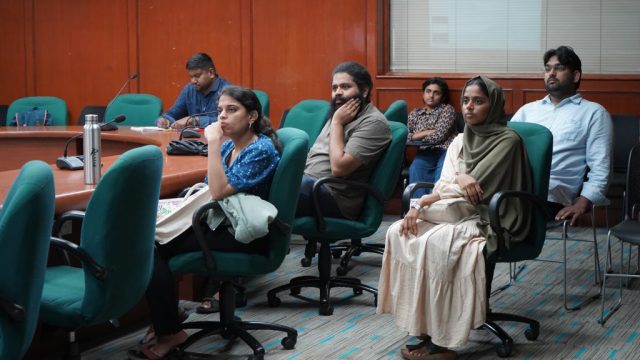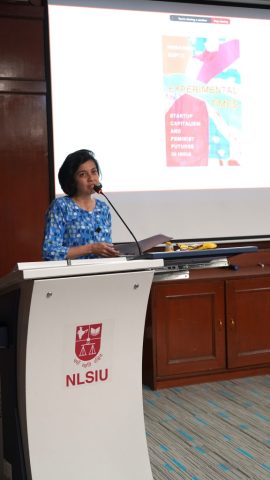Talk on ‘Experimental Times: Startup Capitalism and Feminist Futures in India’ | HUPA Chair on Urban Poor and the Law
July 25, 2025
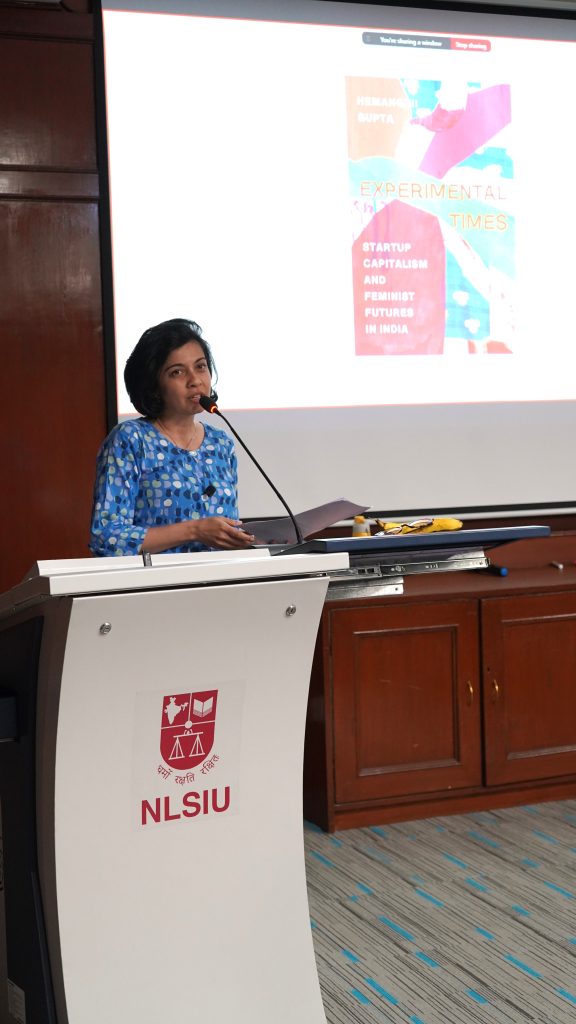 NLSIU’s HUPA Chair on Urban Poor and the Law organised a book talk on ‘Experimental Times: Startup Capitalism and Feminist Futures in India‘ by Dr. Hemangini Gupta, Lecturer, Gender and Global Politics, Department of Politics, University of Edinburgh. The talk took place at the Training Centre at the NLS campus on July 25, 2025.
NLSIU’s HUPA Chair on Urban Poor and the Law organised a book talk on ‘Experimental Times: Startup Capitalism and Feminist Futures in India‘ by Dr. Hemangini Gupta, Lecturer, Gender and Global Politics, Department of Politics, University of Edinburgh. The talk took place at the Training Centre at the NLS campus on July 25, 2025.
About the Book
Experimental Times: Startup Capitalism and Feminist Futures in India is an in-depth ethnography of the transformation of Bengaluru/Bangalore from a site of “backend” IT work to an aspirational global city of enterprise and innovation. In this talk, we journeyed alongside the migrant workers, technologists, and entrepreneurs who shape and survive the dreams of a “Startup India” knitted through office work, at networking meetings and urban festivals, and across sites of leisure in the city. Tracking techno-futures that involve automation and impending precarity, the author will detail the everyday forms of experimentation, care, and friendship that sustain and reproduce life and labour in India’s current economy.
About the Speaker
Dr. Hemangini’s interests include feminist and queer theory; activism; postcolonial and decolonial theory; cities; labour; capital; technoscience; and racialisation. She has a PhD in Women’s Gender and Sexuality Studies from Emory University, Atlanta, US. Her research and teaching interests include transnational feminisms, capitalist spaces and temporalities, and labour and technology in the South.
Her current research unfolds along two major strands:
One project is concerned with the transforming conditions of social reproduction under entrepreneurial and platform capitalism. Within this, she has also undertaken collaborative and multimodal ethnographic fieldwork with workers in entrepreneurial companies to innovate with new methods needed to understand work that is fragmented and dispersed across city spaces. Her research focusses on forms of difference within entrepreneurial economies to understand how historical structures of oppression shape access to finance, funding, and possibilities for labour mobility.
A second strand of research queries the ecological costs and entanglements of large scale data projects. Interrogating technological visions for environmental justice, she asks how we might trace the changes in land and water that accompany a move to “cloud” economies. Offering a grounded and historical context to imaginations and practices of ecological futures, this project situates technological future-making within the infrastructural and logistical architectures through which it is materialised.
Speaking to us, Hemangini said:
“My book ‘Experimental Times’ is about the remaking of Bangalore from a site of backend work to a city that is now celebrated by middle class entrepreneurs and state officials as a global ‘ecosystem’ for innovative startup work. I ask how this refashioning happens – and the question led to fieldwork at accelerator labs, Startup Festivals, and networking meetings but also to the workers who power this economy. I based myself at small and midsize entrepreneurial companies, working alongside a young and often migrant workforce, to understand how this new economy shapes life and labour.
I came to this research wanting to understand what changes in women’s lives with economic shifts – do they enjoy different forms of independence, freedom in the city, and more decisions in their personal and familial lives?”


